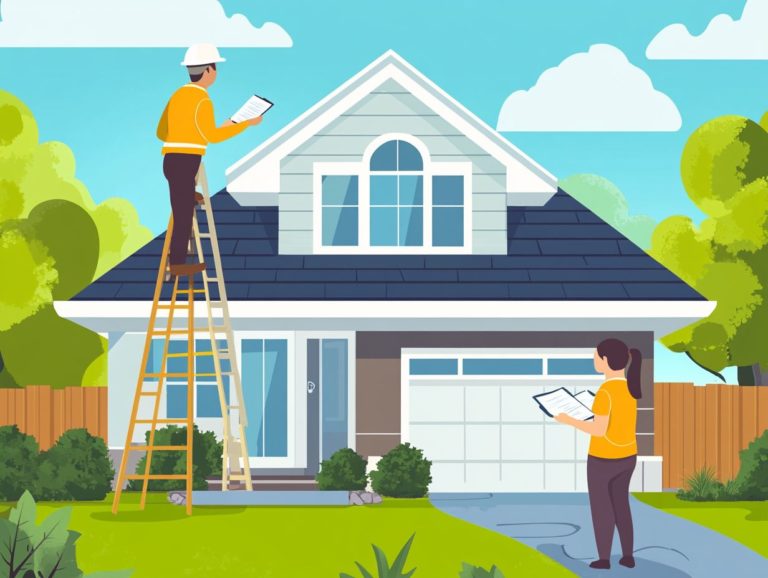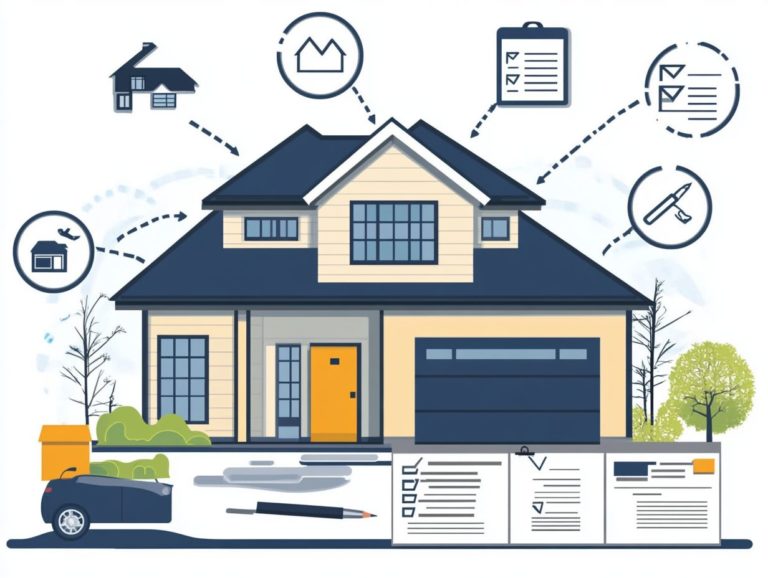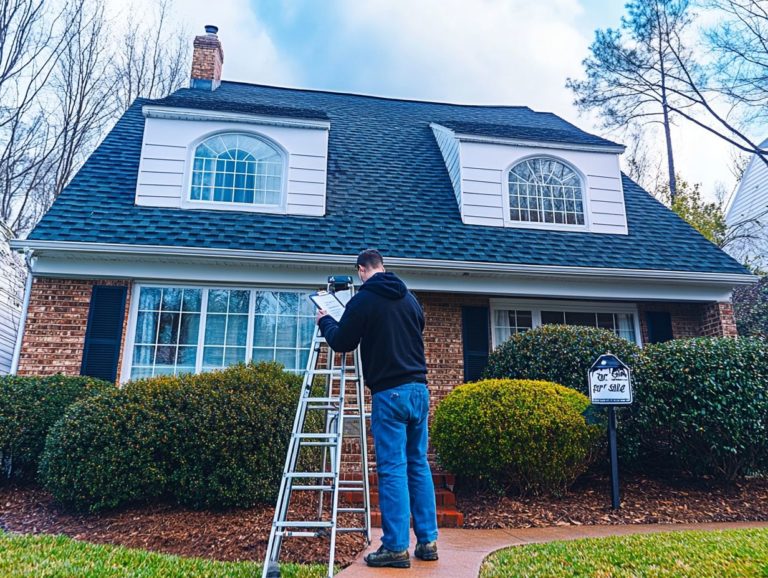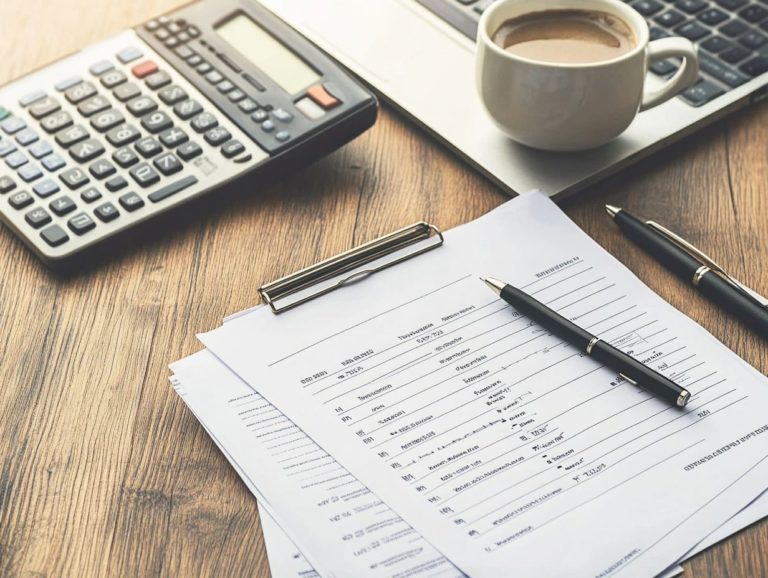How to Communicate with Your Home Inspector
Buying a home is an exhilarating journey, but it presents challenges, especially during the inspection process.
Understanding what to expect enhances your experience. This article is your guide through essential steps to prepare for a home inspection, covering everything from initial preparations to crucial questions to ask your inspector.
It empowers you to interpret findings, voice concerns, and navigate the steps after the inspection. With the right knowledge, you can approach the inspection with confidence, making well-informed decisions in your home-buying adventure.
Contents
- Key Takeaways:
- Preparing for a Home Inspection
- Questions to Ask Your Home Inspector
- Understanding the Inspection Report
- What s Next? Let s Follow Up!
- Following Up After the Inspection
- Frequently Asked Questions
- 1. Can I communicate with my home inspector during the inspection process?
- 2. How can I effectively communicate with my home inspector?
- 3. Can I ask my home inspector for advice or recommendations?
- 4. What should I do if I don’t understand something my home inspector is saying?
- 5. How should I address any concerns I have with my home inspector?
- 6. Can I communicate with my home inspector after the inspection is completed?
Key Takeaways:
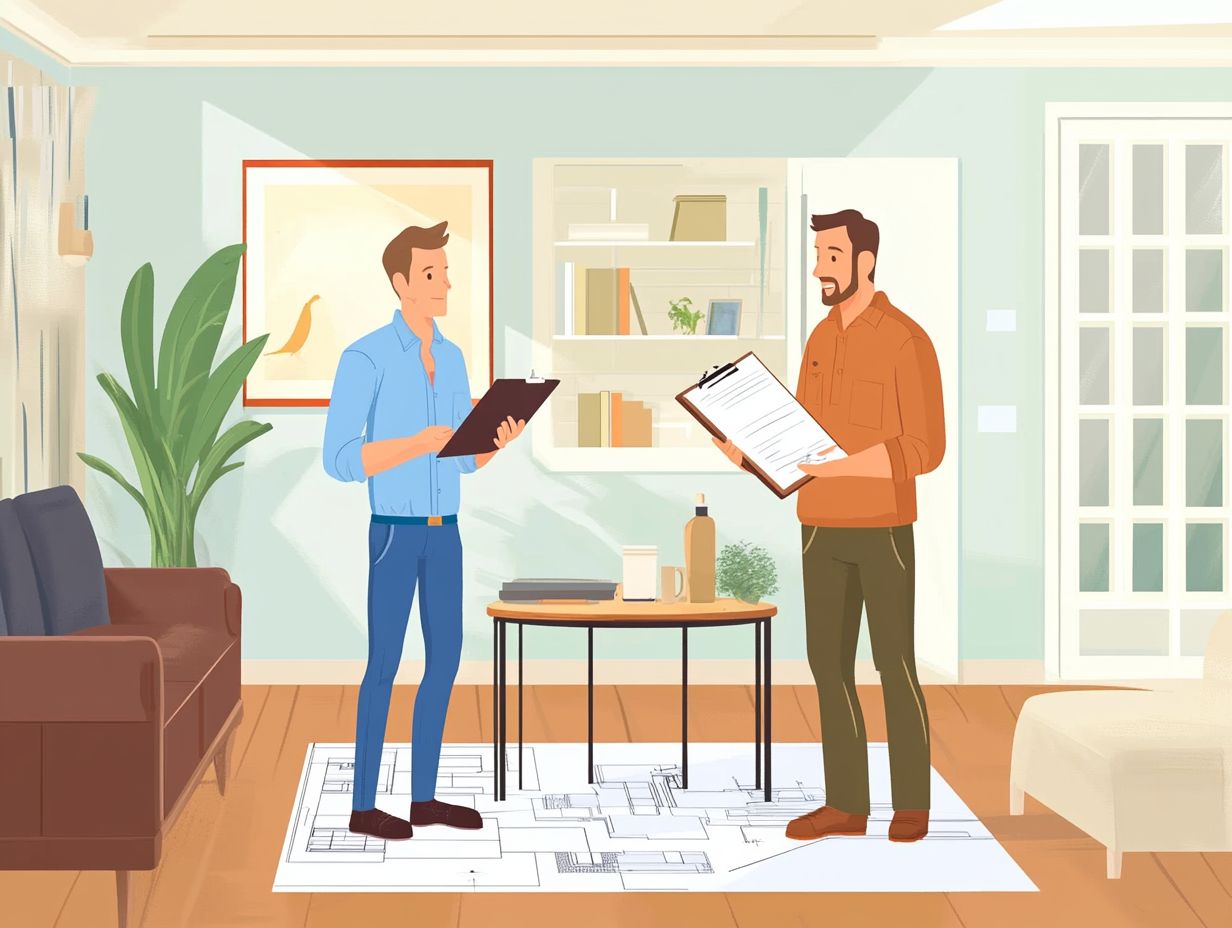
Know what to expect for a successful home inspection.
Ask your home inspector important questions about the inspection and findings to ensure a thorough understanding.
Don’t hesitate to share your concerns with your inspector.
Preparing for a Home Inspection
Preparing for a home inspection is crucial, whether you’re a homeowner or a buyer in the real estate market. It lays the foundation for understanding the property’s condition.
Being informed about the inspection process eases concerns and fosters better communication among everyone involved, including real estate agents.
By considering how to book appointments and taking helpful training classes, you ensure that you’re fully prepared for the inspection. This approach enhances your experience and leads to a more accurate inspection report.
What to Expect and How to Prepare
When preparing for a home inspection, it’s essential to know what to expect from the inspection report and how potential property defects will be evaluated.
Understanding this process enables you as a homeowner. An inspector uses visual assessments and specialized tools to uncover safety hazards that may not be immediately apparent.
Issues like mold, structural defects, or outdated wiring can hide beneath the surface. Recognizing these deficiencies is vital for assessing your property’s condition. You play a crucial role; ensuring easy access to key areas like attics, crawl spaces, and electrical panels enhances the likelihood of a thorough evaluation.
Educating yourself on common inspection findings helps you have a smoother experience, allowing for informed discussions about necessary repairs or improvements.
Questions to Ask Your Home Inspector
Asking the right questions when engaging with your home inspector elevates client satisfaction and fosters trust, especially if you consider key questions to ask your home inspector that address concerns about the inspection findings.
Important Inquiries to Make

During your home inspection, ask the right questions to uncover defects that could affect the property’s value and safety.
Look into the specifics of the inspection summary, shedding light on immediate concerns and potential long-term issues. Inquiring about the significance of various defects helps you understand which problems are critical and which can be managed over time.
Discussing the inspector’s communication practices reveals how effectively they convey information and interpret findings, ensuring your questions are addressed. This engagement enhances your understanding of the property’s condition and enables you to make informed choices, especially when you know how to follow up with your home inspector.
Understanding the Inspection Report
Grasping the inspection report is essential for homeowners and buyers when making informed decisions about property conditions.
This report is your key to making smart decisions about your future home!
Interpreting the Findings and Recommendations
Interpreting the findings and recommendations from the inspection report is essential for you to grasp potential health and safety issues and the actions required to address them.
This careful review involves looking into the specifics of the report, ensuring that you fully comprehend the implications of each recommendation.
For example, if the report highlights inadequate ventilation or improperly stored chemicals, understanding these insights enables you to make informed decisions.
Recognizing your needs is paramount in this process; effective communication means tailoring explanations that resonate with your unique circumstances.
By considering how a recommended correction impacts your operations, you prioritize the most important issues.
Navigating these health and safety concerns creates a safer space and builds trust in the consulting process.
What s Next? Let s Follow Up!
Effective communication of your concerns with the home inspector is crucial. Learning how to communicate with your home inspector ensures that all issues are thoroughly addressed, allowing you to feel confident and assured throughout the inspection process.
Addressing Issues and Asking for Clarification
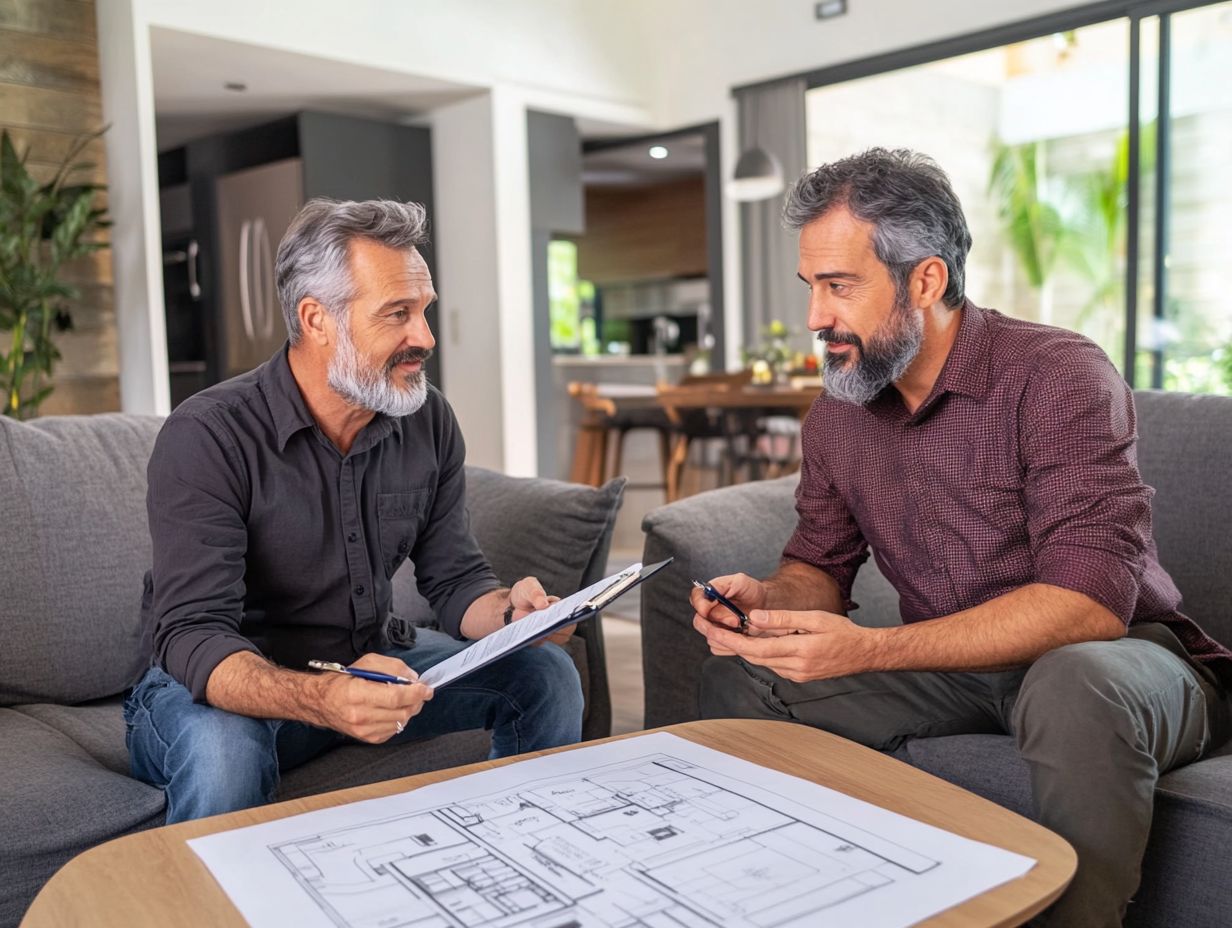
When you re addressing issues and seeking clarification during the inspection process, it s essential to zero in on safety hazards and the identification of serious problems.
To navigate this effectively, adopt a collaborative approach that encourages talking openly with the inspector. Engaging in active listening and posing specific, targeted questions will significantly enhance your understanding, especially if you consider how to prepare for a home inspection.
If something is unclear, encourage the inspector to elaborate on their findings. This can reveal underlying concerns that may not be immediately apparent.
Transparent communication helps resolve misunderstandings and ensures that everyone walks away from the inspection with a cohesive understanding of the property’s condition. This leads to important repairs or improvements.
Following Up After the Inspection
Following up after the inspection is a pivotal phase for you, as it’s the moment to negotiate repairs based on the inspection findings and the property’s overall condition.
This step is essential in ensuring that you address any concerns revealed during the inspection with confidence and clarity.
Negotiating Repairs and Next Steps
Negotiating repairs and determining next steps after a home inspection requires you to wield your communication skills with finesse while addressing any property defects that have come to light.
This process often involves discussing various concerns that may arise from the inspection report, so it s essential to foster a mindset focused on collaboration rather than confrontation.
By clearly outlining the issues and proposing thoughtful solutions, you create an environment where clients feel heard and respected.
Transparency throughout the negotiation process can greatly influence your clients’ understanding of the necessary repairs, making it important to explain the implications of each defect in straightforward terms.
Cultivating a genuine rapport with your clients paves the way for more open dialogues, ensuring that both parties can work together toward satisfactory resolutions. This approach ultimately makes the repair process smoother and far more effective.
Frequently Asked Questions
1. Can I communicate with my home inspector during the inspection process?
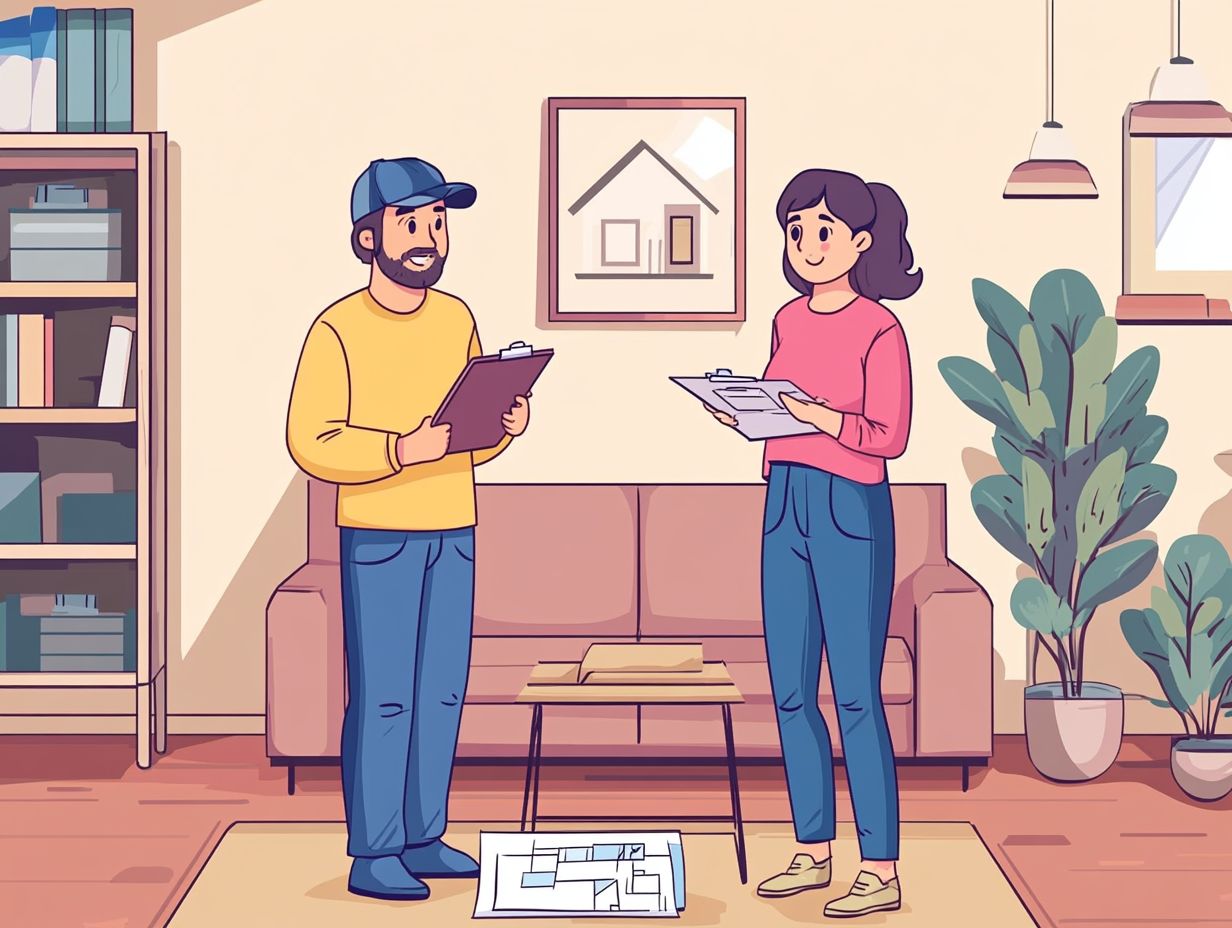
Yes, it is highly encouraged to communicate with your home inspector throughout the inspection process. This allows you to ask any questions you may have and gain a better understanding of the inspection findings, helping you make the most of your home inspector’s expertise.
2. How can I effectively communicate with my home inspector?
The best way to communicate with your home inspector is to be present during the inspection and ask any questions you may have. For additional guidance, check out how to communicate with your inspector. You can also take notes and pictures to refer back to later.
3. Can I ask my home inspector for advice or recommendations?
Your home inspector can provide valuable information about your home’s condition. However, they cannot give specific advice or recommendations. It’s best to talk to a qualified expert for any repairs or renovations.
4. What should I do if I don’t understand something my home inspector is saying?
If something your home inspector says is unclear, don’t hesitate to ask for clarification. They are happy to explain the issue in more detail and answer your questions, especially if you refer to a guide on how to prepare for your home inspection.
5. How should I address any concerns I have with my home inspector?
If you have concerns or questions about the inspection or the report, address them directly with your home inspector. To ensure you get the best insights, consider making the most of your home inspection. They can provide more information and resolve any issues that may arise.
6. Can I communicate with my home inspector after the inspection is completed?
Yes, you can communicate with your home inspector after the inspection is completed. For guidance on what to ask, check out this resource on how to follow up after a home inspection. Feel free to reach out with any questions you have!

